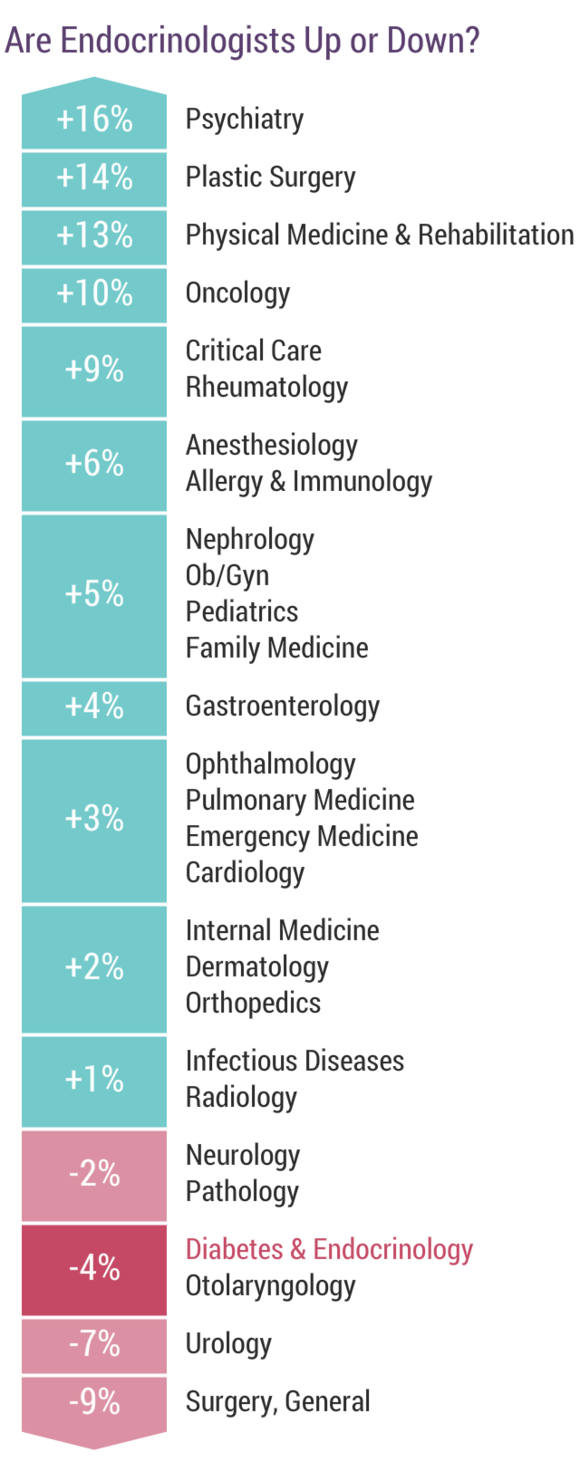Texas Endocrinology: State-of-the-Art Hormone Healthcare
Wiki Article
Browsing the Complexities of Thyroid Problems With an Endocrinologist
Thyroid disorders can be intricate and difficult to take care of. From diagnosis to therapy and long-lasting treatment, navigating the complexities of these problems requires the competence of an endocrinologist. In this write-up, we will certainly check out the importance of seeking expert aid from an endocrinologist when managing thyroid problems. We will certainly delve right into the understanding of various thyroid problems, the importance of exact diagnosis, and the readily available treatment options. In addition, we will certainly discuss the recurring management and assistance required for people with thyroid problems. By recognizing the duty of an endocrinologist in addressing thyroid complexities, individuals can encourage themselves to make educated decisions and get the detailed treatment they are entitled to.Recognizing Thyroid Conditions
Thyroid disorders can be much better understood with assistance from an endocrinologist. The thyroid gland, located in the neck, generates hormonal agents that control numerous bodily features. When this gland becomes underactive or overactive, it can bring about a variety of problems. Hypothyroidism, for instance, occurs when the thyroid does not generate adequate hormones, resulting in symptoms such as fatigue, weight gain, and depression. On the various other hand, hyperthyroidism takes place when the thyroid creates an excess of hormones, resulting in symptoms like weight reduction, rapid heartbeat, and stress and anxiety.Recognizing thyroid problems requires a detailed assessment of a client's case history, health examination, and lab examinations. This is where the experience of an endocrinologist comes to be important. Endocrinologists focus on the diagnosis and treatment of hormone disorders, including thyroid problems. They have the expertise and experience to accurately interpret laboratory results, determine the underlying root cause of the problem, and recommend suitable treatment choices.
Furthermore, endocrinologists recognize with the most current advancements in thyroid research, which enables them to provide the most up-to-date and effective therapy techniques. Endocrinologist in georgetown. They can suggest medicine to control hormone degrees, suggest way of life modifications, and offer advice on taking care of signs. In more intricate situations, they may team up with various other specialists to ensure detailed care

Importance of an Endocrinologist
An endocrinologist plays an important role in the diagnosis and administration of thyroid conditions, supplying customized expertise and knowledge in hormonal problems. With their comprehensive training in the endocrine system, these medical professionals are uniquely certified to deal with and examine thyroid conditions.One of the key reasons an endocrinologist is necessary in the monitoring of thyroid disorders is their capability to accurately detect the problem. Thyroid disorders can be complex, with signs that may overlap with various other clinical problems. An endocrinologist has the know-how to carry out a complete evaluation, consisting of an in-depth medical history, physical examination, and specialized examinations to precisely diagnose the particular thyroid disorder.
In addition, an endocrinologist is furnished to create a customized treatment plan for each private patient. They take right into account elements such as the type and seriousness of the thyroid problem, the client's overall health and wellness, and their preferences. This customized method ensures that the therapy plan is optimized for the individual's specific demands, causing far better outcomes.
Along with diagnosis and treatment, an endocrinologist additionally plays a vital function in lasting administration of thyroid problems. They keep an eye on the person's thyroid hormone levels, change medication dosages if essential, and offer continuous support and education to help clients successfully manage their problem.
Identifying Thyroid Conditions
The endocrinologist's experience extends to properly detecting thyroid disorders with a comprehensive examination, including an in-depth case history, physical exam, and specialized tests (Endocrinology). This approach enables the endocrinologist to collect important information about the person's symptoms, clinical background, and family history, which can give important insights into the possible causes of the thyroid disorderDuring the physical exam, the endocrinologist will very carefully examine the individual's neck for any indicators of swelling or problem in the thyroid gland. They might likewise look for other physical indications, such as modifications in hair appearance, skin dryness, or extending eyes, which can be a measure of thyroid problems.
In addition to the case history and physical evaluation, the endocrinologist may order customized examinations to further assess the feature of the thyroid gland. These tests may consist of blood tests to determine the levels of thyroid hormonal agents, thyroid-stimulating hormonal agent (TSH), and antibodies that might be linked with autoimmune thyroid conditions. Imaging examinations, such as ultrasound or nuclear medication scans, might additionally be done to evaluate the dimension, form, and framework of the thyroid gland.
Treatment Alternatives and Monitoring
There are various therapy options readily available for managing thyroid disorders. The choice of therapy depends on the specific kind and intensity of the thyroid condition, in addition to individual patient variables. In instances of hypothyroidism, where the thyroid gland does not produce adequate thyroid hormones, one of the most common treatment is hormone replacement therapy. This entails taking synthetic thyroid hormones, usually in the type of an everyday tablet. The dose of the hormonal agent replacement drug is thoroughly kept an eye on and readjusted by an endocrinologist to ensure optimal thyroid hormonal agent degrees in the body.For hyperthyroidism, where the thyroid gland generates too much amounts of thyroid hormones, treatment choices consist of medicines, radioactive iodine treatment, or surgical treatment. Drugs, such as beta blockers, can be recommended to handle symptoms and reduce the manufacturing of thyroid hormonal agents.
Along with these conventional therapies, there are additionally different therapies that some individuals may consider, such as organic supplements, acupuncture, or dietary modifications. Nevertheless, it is necessary to note that these different treatments need to be reviewed with an endocrinologist to guarantee they are reliable and secure.
Long-Term Treatment and Assistance
Long-lasting care and support for people with thyroid disorders entails recurring surveillance and individualized therapy intends offered by an endocrinologist. After a preliminary diagnosis and therapy, it is crucial for clients to continue getting regular follow-up care to guarantee that their thyroid feature stays steady which any type of prospective problems are identified and attended to promptly.
Normal monitoring of thyroid hormonal agent levels via blood tests enables the endocrinologist to examine the effectiveness of the treatment plan and make any required changes. This close surveillance additionally enables the early discovery of any type of modifications in thyroid feature and the identification of possible relapses or difficulties, such as the growth of nodules or the development of thyroid cancer. Depending upon the specific requirements of the patient, tracking may occur every couple of months or on a yearly basis.

Final Thought
With Endocrinology their expertise and experience, endocrinologists can supply long-term treatment and assistance to people with thyroid problems. By seeking the assistance of an endocrinologist, clients can get the needed treatment and administration to efficiently navigate their thyroid condition. Endocrinologist.
Report this wiki page